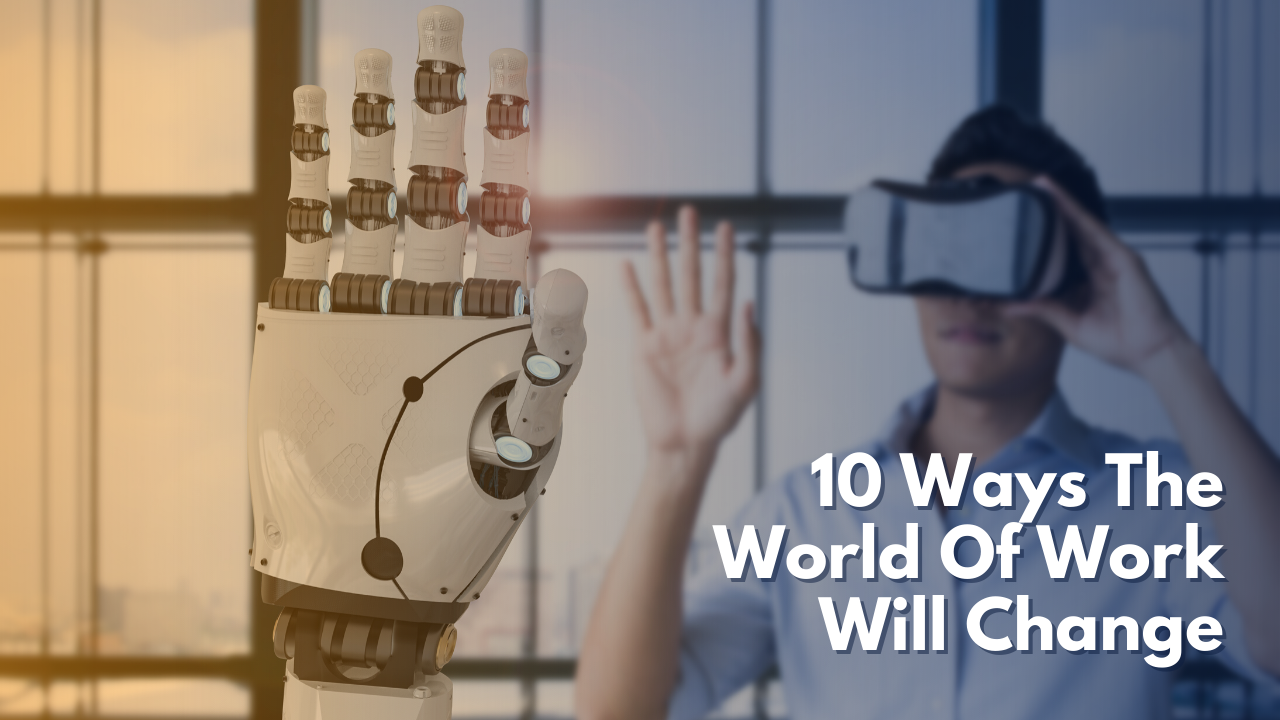- The DNV GL Technology Outlook 2030 report highlights how the world of work could change over the next ten years.
- The IoT and digitisation will unleash a wealth of new business models and opportunities on the world of work.
- But we need to tread carefully to protect the future of work, or ‘mass unemployment’ could result.
When the clock strikes midnight on 31st December 2019, we won’t just enter a New Year. A new decade also dawns and the 2020s will usher in an era where our world of work seamlessly connects to new technologies, opening up a world of possibilities in both the real and virtual realms.
“The future of work can be characterised by agility, flexibility, automation, remote working, mobility, and varying employment relations,” according to the Technology Outlook 2030 report from international accredited registrar and classification society DNV GL.
Based on the findings in the Technology Outlook 2030 report, here are my 10 predictions for the next 10 years of work:
#1 Our traditional 9-to-5 roles are replaced by flexible contracts
Flexibility will become the norm for the world’s workforce by 2030. This prediction is indicated in the Technology Outlook 2030 report, which states: “Workers may shift roles and take on new jobs rather than face job losses. Workers are in control of their working plans, deriving value from their specific skills and previous experience through freelancing or consulting in projects or tasks.”
#2 Job crafting becomes the norm
Thanks to this shift, job crafting will become a necessity for the world’s workforce. Job crafting occurs when an employee makes changes to their job role in order for it to better fit their personal interests and skills.
The report states: “They [workers] are often able to pursue different interests with different employers. Companies hire the required skills rather than disciplines or professions, pay by tasks, and have meaningful contingent arrangements.”
#3 The two-way economy enables mass personalisation and customisation
It’s not just our roles that we can pick and choose from in ten years’ time. We will also be able to personalise and customise what we do and how we do it within the world of work.
The report states: “A common element characterising 2030 is the dominant role of a two-way economy resulting from the wide implementation of digital technologies, automation, virtualisation and social media.”
#4 The acceleration of digitisation unlocks widespread IoT-based technical change
Digitisation is creeping into every area of our lives. Come 2030, ubiquitous cloud access and powerful machine learning capabilities mean our working lives will be permanently interlinked with the digital world.
Thanks to the Internet of Things (IoT) and 5G networks, our ecosystems will also be highly connected and the resulting data pipeline will inform every decision your workspace makes for you.
The report states: “By 2025, the technologies making up IoT will continue to advance and be even more deeply embedded into the fabric of today’s society. For industries, this will mean not only increased understanding of the systems being measured and analysed, but increased ability to remotely operate or automate those systems.”
#5 Automation is increasingly commonplace and advanced
Thanks to the widespread availability of cheap sensors and our capacity to handle and process massive amounts of data, a move from basic automation to advanced autonomy is therefore expected within the next 10 years.
“Workers may no longer be employed for life, spending their days in difficult, tedious or unsafe tasks. Automation and human-machine interactions lead to intelligence augmentation in both people and in organisations,” the report states.
#6 You’ll meet your digital twin
The IoT is also a key enabler of digital twins, which are digital replicas of a physical entity. Within the world of work, you could have your own digital twin. As a result, your workplace preferences (such as your preferred seating position or office temperature) could automatically be set up for you when you arrive at the office.
What’s more, entire offices could be run using a digital twin, which optimises your environment to boost your productivity and reduce running costs.
#7 Your wellness is optimised thanks to next-gen sensors
The next-gen sensors and wearables available in 2030 will also shape our health. The report discusses the impact this will have on the healthcare sector, including a sustainable care model for the world’s healthcare sector. Within the world of work, this health data could also help improve your workplace wellness.
#8 We will still be waiting for decent AR/VR and MR solutions
Augmented, virtual and mixed reality solutions have had a lot of false starts over the years – and we could still be waiting for these technologies to realise their true potential in 2030.
The report states: “Unless prices decrease, or exceptional business value can be derived from their application, this technology may stall and continue to be the domain of proof-of-concept.”
#9 AI advances will depend on regulation
While AI is increasingly reshaping the world of work, we won’t be working alongside sentient machines by 2030, if at all.
“One thing is clear: AI is advancing. It is human regulation, ethical compass and technical capabilities that will determine how fast,” the report states.
#10 Human skills will still matter in 2030
As this tsunami of technologies revolutionises our working lives, the world’s workforce still needs to hone those skills a machine cannot possess.
The report states: “With former competitors now partners, mobilising intelligence provides the backbone for strategic collaborations. Social intelligence, creativity, networking, negotiation and relationship-building become as important as technical skills.”
In conclusion
We need to tread carefully, according to the report, which provides a word of caution: “But this technology-facilitated future of work can also lead to massive unemployment, insecurity, the loss of labour rights, and huge inequalities leading to a race to the bottom, including the disrespect and plundering of the environment.”
While this seems a little pessimistic to me, the future of work is uncertain and clearly relies more on the humans creating these technologies than the solutions that result.
The next 10 years could make or break the world of work. If it’s the latter when the clock strikes midnight on 31st December 2029, we’ll only have ourselves to blame.



 Dr. Gleb Tsipursky – The Office Whisperer
Dr. Gleb Tsipursky – The Office Whisperer Nirit Cohen – WorkFutures
Nirit Cohen – WorkFutures Angela Howard – Culture Expert
Angela Howard – Culture Expert Drew Jones – Design & Innovation
Drew Jones – Design & Innovation Jonathan Price – CRE & Flex Expert
Jonathan Price – CRE & Flex Expert














